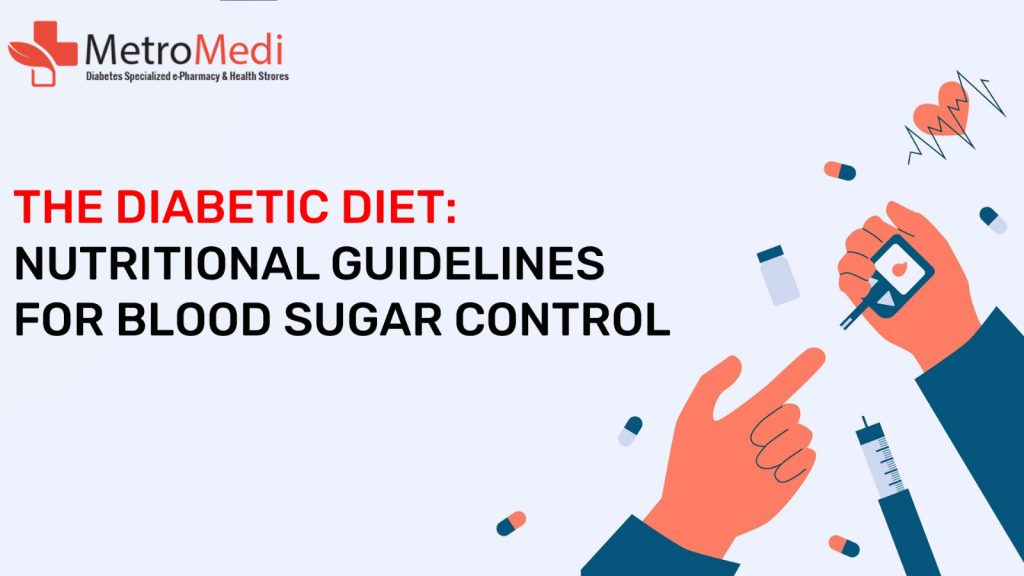
Introduction:
Are you or a loved one struggling to manage diabetes and looking for guidance on nutrition? Understanding how food choices impact blood sugar levels is crucial for effective diabetes management. In this blog post, we’ll delve into the essentials of the diabetic diet, exploring the best foods for controlling blood sugar and providing valuable insights into finding a diabetes doctor near you.The journey to better diabetes management often begins with finding the right healthcare provider. A diabetes doctor, such as an endocrinologist or diabetologist, can offer specialized care and support tailored to your unique needs. To locate a diabetes specialist in your area, start by reaching out to your primary care physician for recommendations. Additionally, online resources and healthcare directories can help you find reputable practitioners nearby.
Food for Diabetic Patients:
A well-balanced diet plays a pivotal role in managing diabetes. The key is to focus on nutrient-dense foods that help stabilize blood sugar levels while providing essential vitamins and minerals. Here are some dietary recommendations for diabetic patients:
- Complex Carbohydrates: Opt for whole grains like quinoa, brown rice, and oatmeal over refined grains. These complex carbohydrates are digested more slowly, leading to gradual rises in blood sugar levels.
- Lean Proteins: Incorporate lean protein sources such as skinless poultry, fish, tofu, and legumes into your meals. Protein helps promote satiety and can aid in stabilizing blood sugar levels.
- Healthy Fats: Include heart-healthy fats like avocado, nuts, seeds, and olive oil in your diet. These fats contribute to overall health and can help improve insulin sensitivity.
- Non-Starchy Vegetables: Load up on non-starchy vegetables such as leafy greens, broccoli, cauliflower, and peppers. These vegetables are low in carbohydrates and calories while being rich in fiber and essential nutrients.
- Fruits in Moderation: While fruits contain natural sugars, they can still be part of a diabetic diet when consumed in moderation. Opt for fruits with lower glycemic index such as berries, cherries, apples, and citrus fruits.
Best Food for Diabetes Control:
The best foods for diabetes control are those that help regulate blood sugar levels and support overall health. By focusing on whole, unprocessed foods and mindful eating, you can effectively manage your diabetes. Here are some additional tips for controlling blood sugar through diet:
- Portion Control: Pay attention to portion sizes to prevent overeating and minimize spikes in blood sugar levels.
- Regular Meal Timing: Aim for consistency in your meal timing and spacing throughout the day to help maintain stable blood sugar levels.
- Stay Hydrated: Drink plenty of water throughout the day to stay hydrated and support optimal blood sugar management.
- Monitor Carbohydrate Intake: Keep track of your carbohydrate intake, especially if you’re counting carbs to manage your diabetes. Consider working with a registered dietitian for personalized guidance.
Good Foods for Diabetics:
When it comes to selecting foods for diabetes management, focus on nutrient-rich options that support overall health and well-being. By making informed choices and incorporating a variety of foods into your diet, you can enjoy delicious meals while keeping your blood sugar levels in check.
In conclusion, managing diabetes requires a multifaceted approach that includes proper nutrition, regular physical activity, and ongoing medical care. By following the nutritional guidelines outlined in this blog post and seeking support from a diabetes doctor near you, you can take proactive steps toward better blood sugar control and improved quality of life. Remember, small changes can lead to significant improvements in your health and well-being.
